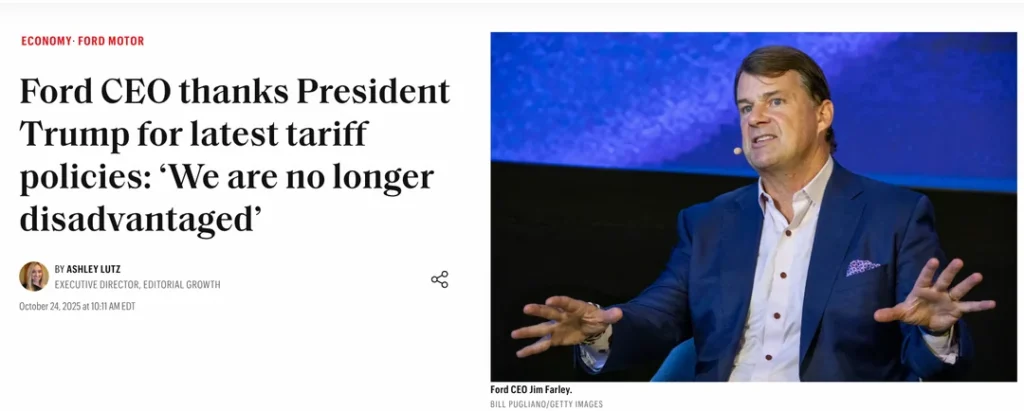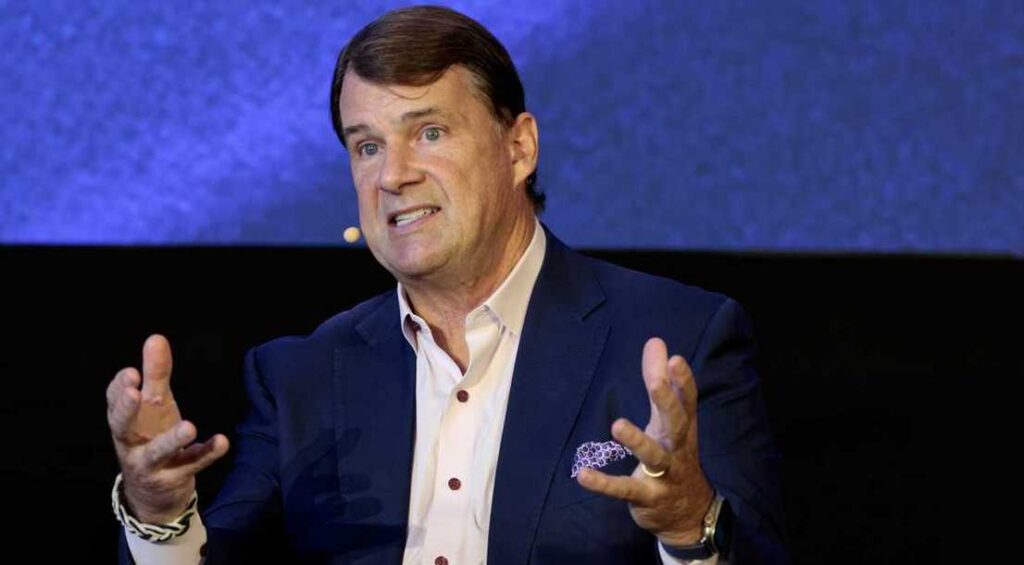“I’d like to thank President Trump and his team for the recent tariff policy developments, which are favorable to Ford as the most American auto manufacturer. Credit, based on our large U.S. manufacturing volume, will allow us to offset tariffs on imported auto parts we need for our strong American production and manufacturing base,” Farley told investors on the earnings call.

Ford Motor Company is confronting a major hurdle as it attempts to hire 5,000 skilled mechanics, even with salaries hovering near $120,000. CEO Jim Farley has warned that this worker shortage is a “serious problem,” one that stretches far beyond the auto sector and has become a national issue touching manufacturing, trucking, emergency services and more. With over a million skilled-trade roles sitting empty across the United States, the divide between job openings and trained workers continues to widen, raising alarms about the long-term stability of the American labor force.
Speaking recently on the Office Hours: Business Edition podcast, Farley stressed that Ford is not the only company unable to find qualified workers. The country is currently short more than one million skilled-trade and manual labor employees, including crucial positions in electrical work, plumbing, emergency response, manufacturing and trucking. He noted that even when companies offer high pay, the supply of trained talent simply does not meet the increasing demand. New federal figures back this up, showing more than 400,000 manufacturing positions still unfilled nationwide, at the same time unemployment has climbed to 4.3 percent. The data suggests the problem isn’t a shortage of jobs but a steep drop-off in the number of trained people available to take them.
Only if you had listened… the problem is you will still not listen to me.
— Ritesh Jain (@riteshmjn) November 13, 2025
The average $60000 per capita white collar wages in U.S. cannot afford a $150-200 dollar per hour ( yes per hour) mechanic, carpenter, electrician worker in western world. https://t.co/Sp7sqMROuM pic.twitter.com/ZpVugKVWuj
Farley links much of the crisis to the collapse of trade-centered education and apprenticeship programs. He explained that becoming a technician or mechanic takes years of hands-on training, which has become increasingly difficult to access. Farley criticized decades of neglect in vocational education, remarking, “We do not have trade schools.” He spoke about the loss of career paths that once allowed workers like his grandfather, who serviced the Model T, to secure solid middle-class incomes through skilled labor. That historical reference underscores how essential trade education has always been in building a reliable workforce.
To combat the shortage, Ford has taken several steps to make its skilled-trade jobs more appealing. The company removed the lowest pay tier and approved a 25 percent wage boost over four years as part of the 2023 agreement with the United Auto Workers. But even with those improvements, filling these roles remains a struggle, suggesting the issue is rooted in deeper structural problems rather than pay alone. Farley’s remarks point to the need for a broad, long-term strategy to address the market’s underlying weaknesses.
Farley also noted that younger generations may ultimately help shift the landscape. After years of declining interest in trade careers, enrollment in trade programs jumped 16 percent last year, the biggest increase since tracking began in 2018. This rise reflects growing frustration with student debt and a renewed understanding that skilled jobs often provide solid earnings and financial security without requiring a four-year degree. Still, Farley cautioned that although this change is encouraging, it won’t be enough to quickly close the labor gap. Because skilled trades require years of training, rebuilding the workforce will take time. Without strong investment in training programs and vocational pipelines, the U.S. risks undermining its economic outlook, as skilled trades continue to be vital for infrastructure, industry, and essential services.


